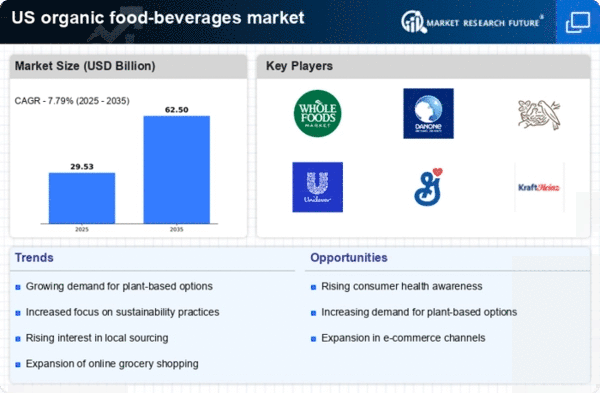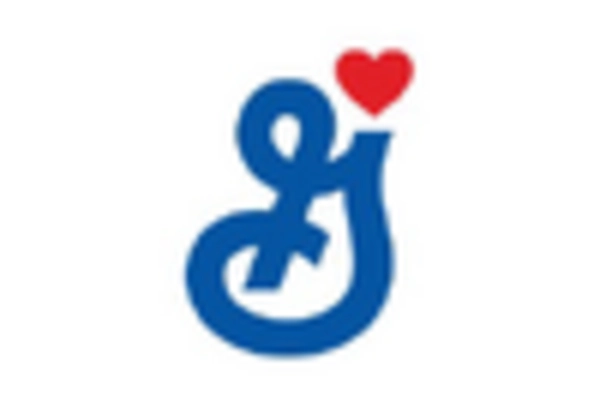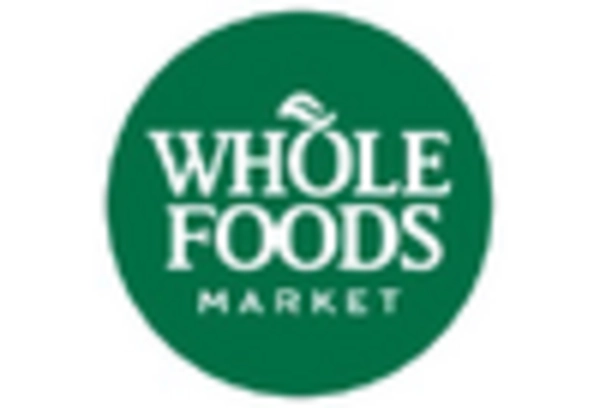E-commerce Growth
The organic food-beverages market is experiencing a significant shift towards e-commerce as more consumers prefer the convenience of online shopping. In 2025, online sales of organic food-beverages accounted for approximately 25% of total sales, reflecting a growing trend among consumers who value accessibility and variety. This shift is further fueled by the growing use of smartphones and the expansion of delivery services. As consumers seek the convenience of purchasing organic products from the comfort of their homes, retailers are adapting their strategies to enhance online presence. This trend is likely to continue, as e-commerce platforms provide a broader reach for organic food-beverages, allowing brands to connect with a wider audience.
Regulatory Support
Regulatory frameworks are increasingly supporting the organic food-beverages market, as governments implement policies that promote organic farming and production. In the US, the USDA's National Organic Program sets standards for organic products, ensuring that consumers receive high-quality items. This regulatory support not only enhances consumer trust but also encourages farmers to transition to organic practices. As a result, the organic food-beverages market is likely to benefit from increased supply and improved product availability. The market's growth is further supported by government initiatives aimed at promoting sustainable agriculture, which aligns with the rising consumer demand for organic options.
Focus on Local Sourcing
The organic food-beverages market is increasingly characterized by a focus on local sourcing, as consumers show a preference for products that are produced closer to home. This trend is driven by a desire to support local economies and reduce the carbon footprint associated with transportation. In 2025, approximately 30% of organic food-beverages sold in the US were sourced locally, indicating a growing movement towards community-supported agriculture. This emphasis on local sourcing not only enhances the freshness of products but also fosters a connection between consumers and producers. As the organic food-beverages market continues to evolve, this trend is likely to gain further traction, reflecting a broader commitment to sustainability.
Rising Consumer Awareness
The organic food-beverages market is experiencing a notable surge in consumer awareness regarding health and environmental issues. As individuals become more informed about the benefits of organic products, they are increasingly opting for items that align with their values. This shift is reflected in the market, where organic food-beverages sales reached approximately $50 billion in 2025, indicating a growth of around 10% from the previous year. Consumers are now scrutinizing labels and seeking products that are free from synthetic additives and pesticides. This heightened awareness is driving demand for organic food-beverages, as consumers prioritize their health and the planet's well-being.
Innovative Product Offerings
Innovation plays a crucial role in the organic food-beverages market, as companies continuously develop new products to meet evolving consumer preferences. The introduction of unique flavors, functional beverages, and plant-based alternatives has expanded the market's appeal. For instance, the market for organic plant-based beverages is projected to grow by 15% annually, driven by increasing interest in vegan and vegetarian diets. This trend indicates that consumers are not only looking for organic options but also for innovative products that cater to their diverse dietary needs. As a result, companies are investing in research and development to create exciting offerings that resonate with health-conscious consumers.
















